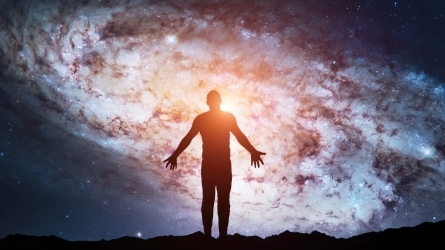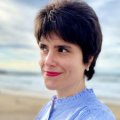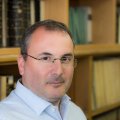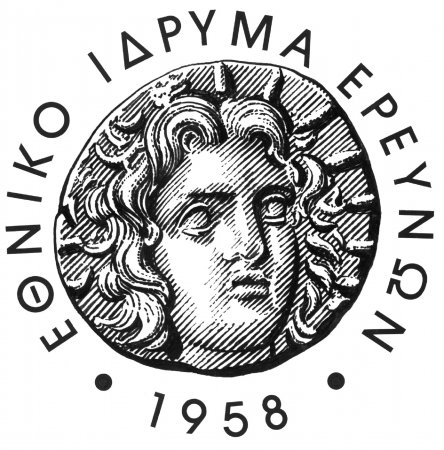
Ciencia, Religión, Nacionalismo. Recorrido histórico y reflexiones contemporáneas
Description
El historiador Eric Hobsbawm acuñó la expresión "Tradiciones Inventadas" para referirse a las historias, los mitos y las prácticas colectivas que los estados-nación modernos forjaron para su legitimación. Padres fundadores de la patria, ideales de progreso, orígenes ancestrales, ceremonias de exaltación nacional, etc., se multiplicaron por doquier durante los siglos XIX y XX. Muchas de estas prácticas y narrativas tienen un eco en cermonias religiosas: las naciones y las religiones se identificaban entre sí o competían por la hegemonía culutral y políitca, según el lugar del que se tratara. La ciencia moderna fue uno de los elementos principales para la configuración de las nuevas naciones: el telégrafo y el ferrocarril permitían la unidad territorial, mientras que las políticas de salud pública o de educación aspiraban al control de los cuerpos y de las lealtades. Este Curso de Verano pretende favorecer la reflexión entre ciencia, nacionalismo y religión tanto desde un punto de vista histórico como contemporáneo.
La anticuada y desechada "tesis del conflcito", según la cual la ciencia y la religión han estado siempre y en todo lugar en contraposición, es ya una reliquia del pasado entre historiadores y filósofos, especialmente en el mundo anglosajón. Aun así, permanece en el imaginario colectivo como una verdad recibida y usada con frecuencia en la cultura popular. En este Curso exploraremos los orígenes históricos de algunas de estas tesis y su relación con la emergencia de los estados-nación modernos. A la vez, reflexionaremos acerca de los nuevos retos en las sociedades europeas actuales, donde la multiculturalidad y la migración, así como la emergencia de movimientos radicales en ambos extremos del espectro político, han alimentado negacionismos científicos de distintos tipos.
Esta Escuela de Verano es parte de una red de escuelas de verano europeas que también quiere analizar y comparar las respuestas de la audiencia procedente de contextos nacionales, religiosos y científicos distintos.
Entrevista a Jaume Navarro en Radio Euskadi| LaMecánicaDelCaracol - Eva Caballero
Objectives
Conocer la historia de las relciones entre ciencia, religión y nacionalismo, así como los orígenes de las narrativas habituales en este ámbito.
Reflexionar sobre el lugar de las creencias y prácticas religiosas en el desarrollo de las ciencias y en el desarrollo de las naciones modernas.
Conocer los resultados del trabajo académico realizado en la última década y que han transformado el campo de los estudios ciencia-religión desde perspectivas no confesionales.
Reflexionar sobre la relación actual entre identidad nacional, identidad religiosa y conocimiento científico en la Europa del siglo XXI, con atención especial al surgimiento de negacionismos científicos.
Activity directed to
- All public
- University student
- Students not from university
- Teachers
- Professionals
Program
20-06-2024
Registro
Presentation by the Director of the activity
- Jaume Navarro --- | Universidad del País Vasco - Ikerbasque Research Professor (Participation by zoom)
“Ciencia, Religión, Nacionalismo. ¿De qué estamos hablando?“
- Jaume Navarro --- | Universidad del País Vasco - Ikerbasque Research Professor (Participation by zoom)
Break
“Forjando nuevas naciones: Grecia, ciencia y religión en el siglo XIX“
- Kostas Tampakis | National Hellenic Foundation - Investigador Principal
“Controversias científicas, controversias religiosas“
- Jaume Navarro --- | Universidad del País Vasco - Ikerbasque Research Professor (Participation by zoom)
Break
“Transformando iglesias en museos de ateísmo. Ciencia y relgión en la Unión Soviética“
- Katarzyna Jarosz | University of Logistics in Wrocław - Profesora
“Las creencias de los científicos; la ciencia de los religiosos. Estudios recientes“
- Maria del Mar Griera Llonch | Universitat Autònoma de Barcelona - Profesora titular y directora del ISOR (Investigaciones en Sociología de la Religión)
21-06-2024
“La extraña inversión de razonamiento de Darwin: Apuntes sobre ciencia, religión e intuición“
- Bárbara Jiménez Pazos | Universidad del País Vasco - Profesora
“Las matrices religiosas y/o espirituales de las teorías conspiracionistas o negacionistas“
- Maria del Mar Griera Llonch | Universitat Autònoma de Barcelona - Profesora titular y directora del ISOR (Invesitigaciones en Sociología de la Religión)
Break
Round table: “Más allá de la Tesis del Conflicto: Historias y controversias contemporáneas en las relaciones entre ciencia, religión e identidad nacional“
- Bárbara Jiménez Pazos | Universidad del País Vasco - Profesora de Filosofía
- Maria del Mar Griera Llonch | Universitat Autònoma de Barcelona - Profesora titular y directora del ISOR (Invesitgaciones en Sociología de la Religión)
- Katarzyna Jarosz | University of Logistics in Wrocław - Profesora
Directors
Jaume Navarro is Ikerbasque Research Professor at the University of the Basque Country. He has worked extensively on the history of 19th and 20th century physics and is author, among others, of A History of the Electron (Cambridge, 2012), and editor of Research and Pedagogy: A history of Quantum Physics through its Textbooks (Berlin, 2013) and Ether and Modernity: The recalcitrance of an epistemic object (Oxford, 2018).
Speakers

Maria del Mar Griera Llonch
Dr MAR GRIERA is Full Professor of Sociology at the Faculty of Political Science and Sociology. She is also the current director of the research group ISOR (Research centre for the study of religion). She holds an ICREA Academia Fellowship (2021-26). Her main research expertise lies at the intersection of religious diversity, identity and politics in contemporary Europe. She has coordinated several competitive projects in these areas and extensively published their results in top academic journals and books. In 2022, she was invited as a research director at the École Pratique des Hautes Études, and previously she was invited as a research fellow at the Université de Lausanne (2016), at the Institute on Culture, Religion and World Affairs at Boston University (2009), at the Universiteit Van Amsterdam (2008), at the University of Exeter (2006) and at the University of Strasbourg (2004). Dr. Griera is currently serving as president of the RC22 committee on Sociology of Religion of the International Sociological Association and member of the European Advisory Board of the l’Institut Européen en Sciences des Religions (École Pratique des Hautes Études, Paris) and Council member of the International Society for the Sociology of Rel

Katarzyna Jarosz
Katarzyna Jarosz is an researcher and lecturer specializing in the history of science and memory studies. She obtained her Ph.D. in archaeology from Warsaw University in 2013, with a focus on the history of archaeology. She has worked at several scientific institutions Currently she works as an assistant professor at the International University of Logistics and Transport. Her research interests include the history of science and memory studies. Jarosz has undertaken research fellowships at institutions such as the Center for the History of Global Development at Shanghai University and the Georg Eckert Institute, where she studied the role of textbooks in shaping national identities in new Central Asian countries. She is fluent in several languages, facilitating her international research activities. Her work is published in reputable academic journals, contributing significantly to the field of science and education. Her latest publication is titled "Scientific Atheism Seen Through the Lens of Historical Museums," which appears in the book "Science, Religion, Nationalism," edited by Jaume Navarro and Kostas Tampakis, published by Routledge in 2024.

Bárbara Jiménez Pazos
Bárbara Jiménez Pazos es doctora en Filosofía por la Universidad del País Vasco-Euskal Herriko Unibertsitatea (UPV/EHU). Actualmente, es profesora adjunta del Departamento de Filosofía en la Facultad de Educación, Filosofía y Antropología de la UPV/EHU (Campus de Guipúzcoa, San Sebastián), e imparte docencia en la Facultad de Relaciones Laborales y Trabajo Social del Campus de Álaba. Su investigación se enmarca en el campo de la Historia y la Filosofía de las Ideas, centrándose especialmente en el sub-campo del darwinismo y sus implicaciones socio-filosóficas. En los últimos años, ha combinado el estudio filosófico del darwinismo con metodologías de minería de textos. Su objetivo ha sido analizar cuantitativa y semánticamente el léxico de Darwin en sus textos para obtener conclusiones más sólidas sobre el patrimonio conceptual que hemos recibido del darwinismo. Entre sus labores de gestión académicas, destaca la organización del Congreso Internacional de Ontología.
Jaume Navarro is Ikerbasque Research Professor at the University of the Basque Country. He has worked extensively on the history of 19th and 20th century physics and is author, among others, of A History of the Electron (Cambridge, 2012), and editor of Research and Pedagogy: A history of Quantum Physics through its Textbooks (Berlin, 2013) and Ether and Modernity: The recalcitrance of an epistemic object (Oxford, 2018).

Kostas Tampakis
Kostas Tampakis holds a PhD in the History of Science from the University of Athens. He has been a Postdoctoral Research fellow in the University pf Princeton and a Visiting Scholar in the University of Cambridge. He is currently a Senior Researcher in the History of Science and Technology in the Institute of Historical Research of the National Hellenic Research Foundation. His research interests include the History of Science and Orthodox Christianity, Science and Ideology, Science and Literature and 19th and 20th History of Science and Technology. Kostas Tampakis has co-edited five volumes, and his papers have appeared in Isis, the British Journal for the History of Science, Zygon, History of Science and Science&Education.
Registration fees
| Face-to-face | Until 20-06-2024 |
|---|---|
| 25,00 EUR |
| Live online | Until 20-06-2024 |
|---|---|
| 25,00 EUR |
Venue
Miramar Palace
Pº de Miraconcha nº 48. Donostia / San Sebastián
Gipuzkoa
Miramar Palace
Pº de Miraconcha nº 48. Donostia / San Sebastián
Gipuzkoa
Sustainable development goals
Agenda 2030 is the new international development agenda approved in September 2015 by the United Nations. This agenda aims to be an instrument to favour sustainable human development all over the planet, and its main pillars are the eradication of poverty, a reduction in equality and vulnerability and fostering sustainability. It is a unique opportunity to transform the world up to 2030 and guarantee human rights for all.

4 - Quality education
Guarantee quality education that is inclusive and equitable and foster opportunities for lifelong learning for everyone. Key issues: free-of-charge, equitable and quality education, access to higher education and training on an equal basis, education for sustainable development, suitable education centres for persons with disabilities, and safe, non-violent and efficient learning environments.
More information









